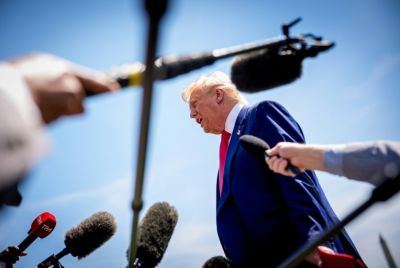Europe May Rethink Fracking As Fear Of Russia Grows
European countries that have long opposed hydraulic fracturing appear to be rethinking their perspective as Russian troops stay put in Crimea and threaten to keep Russia’s grip on European energy dominance.
Russian leaders, particularly President Vladimir Putin, have loudly opposed the method of drilling that enabled the U.S. energy boom for what they say are environmental reasons. The more likely motivation is that if Europe increased fracking, its dependence on Russian natural gas would lessen, and with it Russia's exports and power over Europe.
U.S. crude oil production reached its highest production in 24 years in 2013, and fracking in North Dakota and Texas accounted for 83 percent of the U.S. production growth, according to a recent report by the U.S. Energy Information Administration.
The EIA has estimated that Europe rests on significant shale gas reserves, but most European countries have not seriously considered fracking, or like France, have banned it. Bulgaria has banned fracking even while relying on Russian gas.
But last week, the European Parliament passed legislation that tightened environmental rules for oil and gas exploration, yet exempted shale gas projects. Poland offered six-year tax breaks to its shale gas industry to speed up exploration and wean the country off its reliance on Russian gas. And a handful of European trade organizations, like the EU employers’ association, are promoting shale gas as the path to greater energy security.
European steel lobby Eurofer wrote an open letter to European heads of government, urging them to allow fracking.
"Given the absolute necessity for Europe to diversify its sources of supply of gas and to find solutions to the huge energy price differential with its main competitors, we see no alternative but to proceed as rapidly as possible with shale gas exploitation as part of the energy mix in Europe while retaining all the precautions necessary in pursuing this approach," Gordon Moffatt, director general of Eurofer, said in a statement Thursday.
Most of the business groups lobbied for fracking before the Ukrainian crisis, but like the oil and gas lobby in the U.S., they have shifted their arguments from economics, bringing the price of natural gas down to America's level, to energy security.
"The current Ukraine-Russia situation could spur European countries to increase their fracking efforts,” Michael Peterson, managing director, energy research, of MLV & Co., said in a March 11 email. “Although the political clout of the green/environmental parties in Europe is likely to remain formidable, even in the face of harsh economic reality, longer-term, escalation could motivate incremental/accelerated exploration for alternative natural gas sources."
© Copyright IBTimes 2024. All rights reserved.





















